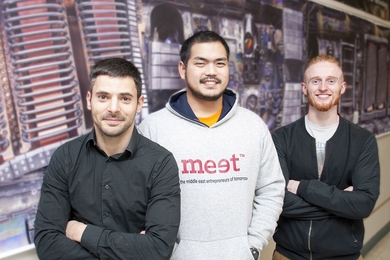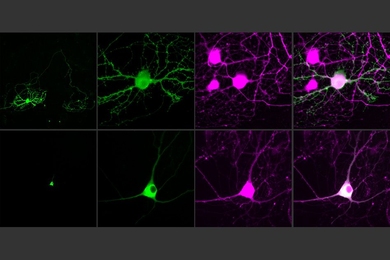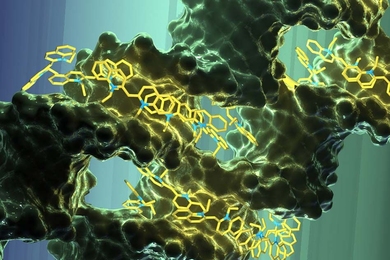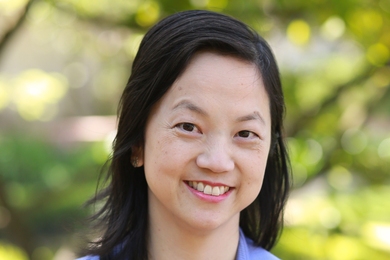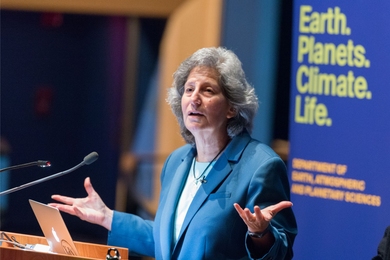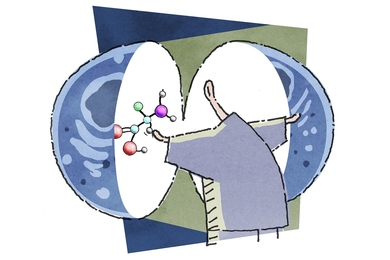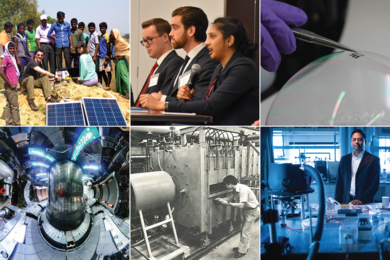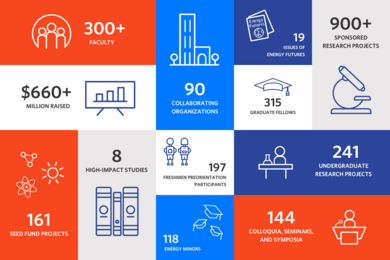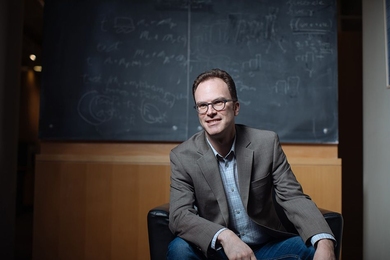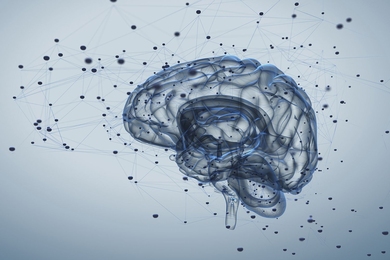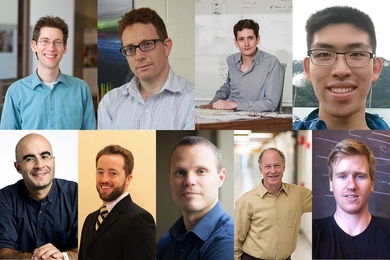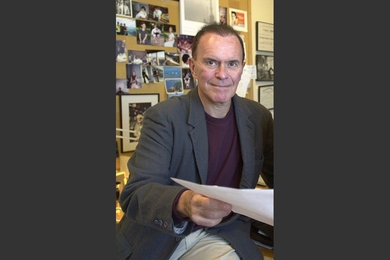Bridging the divide with technology
Three from the Plasma Science and Fusion Center spend time with the Middle East Entrepreneurs of Tomorrow.
Next-generation optogenetic molecules control single neurons
Focused laser beam could help scientists map connections among neurons that underlie behavior.
Texas’ odds of Harvey-scale rainfall to increase by end of century
Study finds state’s annual risk of extreme rainfall will rise from 1 to 18 percent.
Synthetic circuits can harvest light energy
Novel structures made with DNA scaffolds could be used to create solar-powered materials.
Physician founds online birth control service
Sophia Yen '93 is on a mission: to make preventing unplanned pregnancies as easy as possible by making prescription contraceptives available online.
A brief history of environmental successes
Susan Solomon's John H. Carlson Lecture examines past environmental challenges in the context of today's fight against climate change.
New player in cellular signaling
Researchers have identified a key nutrient sensor in the mTOR pathway that links nutrient availability to cell growth.
Strong current of energy runs through MIT
Research, education, and student activities help create a robust community focused on fueling the world's future.
3Q: Robert Armstrong on 10 years of energy research at MIT
MIT Energy Initiative Director Robert Armstrong shares perspectives on past successes and ongoing and future energy projects at the Institute.
Jesse Thaler: Seeking the fundamental nature of matter
Theorist explores particle physics at the boundary of “messy and elegant.”
Tech and Tec: Nanoscale international engagement
Monterrey Tec Chairman José Antonio Fernández Carbajal tours MIT.nano during his first meeting as the newest member of the MIT Corporation.
Promise seen in possible treatment for autism spectrum disorder
Studies in mice show improved social interaction and cognition from a potential therapeutic for a syndrome that often results in autism.
Twelve from MIT honored by the American Physical Society
Prize winners span six departments in the schools of Science and Engineering.
MIT research laid groundwork for promising Alzheimer’s-fighting drink
Studies by Richard Wurtman have led to development of nutrient mix shown to slow cognitive impairment in early stages of the disease.

